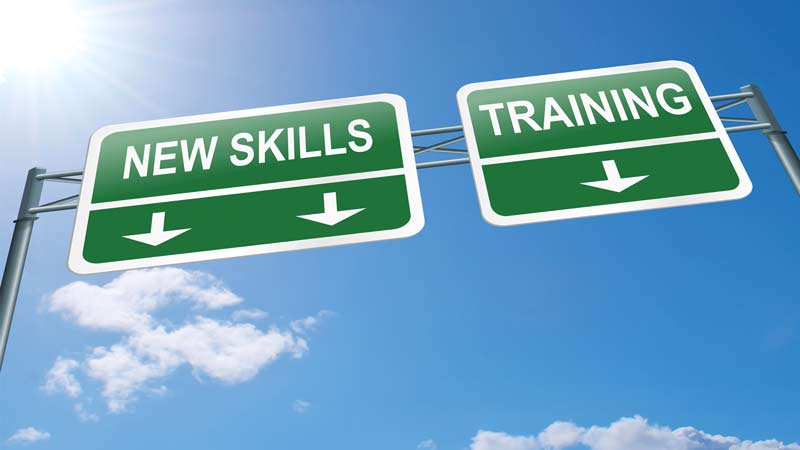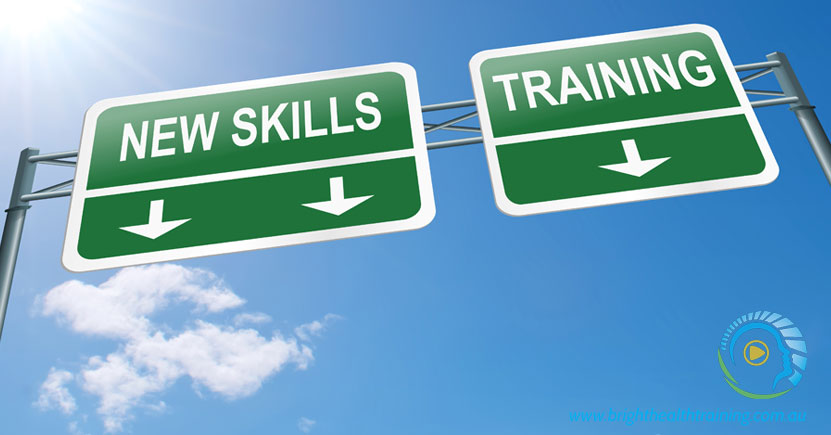Within personal training there is a saying you will hear often, “results speak for themselves”. If a client is achieving their goals, then generally the ends justify the means, so long as it’s ethical of course!. If your client has to go through difficult training to get results then ultimately they will be happy, especially if it is a significant “life-goal” or ticking something off their “bucket list”.
However, if your clients are training hard and not getting results, who do you think will be held accountable? The pin weight machines and exercise bikes? Nope, the professional giving the advice, that’s you. Having the skills to manage a client through an exercise program or treatment program is ultimately what matters.
From the perspective of a manual therapist, if a client comes to you with a hamstring length problem and you can’t help them with that problem due to a lack of skill, how do you think your reputation and business will be affected?
What are your goals?
You spend all day working towards your clients’ goals or needs, but what are your professional goals? Perhaps you are wanting to work with a particular sport, such as rugby, netball or soccer. Do you have the skills to do it? Sure you have the desire and drive, but can you really assess correctly, create an exercise or treatment program and get the results needed? What happens if you have some of the skills but not all? Where do you go to get those skills?
Take a quick look at this article, it talks about the qualities of a good personal trainer. Regardless of your training, these fundamental skills apply to pretty much all professionals in the Health and Fitness industries.
From the perspective of your client or patient
Regardless of whether you call your customers clients or patients, isn’t achieving the client’s desired outcome the most important factor in your business?
Training, qualifications, referees, certificates on the wall and a well managed clinic are things that will be of little value if you do not have the skills to achieve outcomes for your clients. In short, they won’t care about your knowledge and professional recognition if you can’t help them. If you have a recognised title, they might give you more time to achieve your desired goals but ultimately, if you can’t deliver, it won’t matter how qualified you are.
Word of mouth referral and reputation are critical to being an ‘in demand’ practitioner. How’s your business? Do you have enough clients? If not, why not? Are your clients out there singing your praises to their friends and family? Consider this in terms of your skills and the outcomes you’re delivering to your clients.
So, what exactly are skills?
If you were to type “skills definition” into a google search, the response you will get is:
“the ability to do something well; expertise”
When working in the health and fitness industries there are two factors you should consider when developing as a professional – knowledge and skills. When working in close proximity with your clients and patients, there is no question that they will get to know very quickly your practical strengths and weaknesses. So which is more important, knowing or doing?
Skill is your ability to do something well and if you don’t have the skills to do the things you want, you don’t get to do the things you want. Simple.
Are you “surfing your Pipeline”?
Take surfing as an example, perhaps you have seen the famous Pipeline surf break in Hawaii? The Pipeline Masters was held recently in December. For many surfers, the break is considered holy grail. Imagine yourself as surfer, sitting on the beach at Pipeline. You want to surf it, you have seen others surf there but you don’t have the skill. The closest you get is sitting on the beach watching others drop, cut, turn and ride the wave of their lives, again and again. How do you feel? Would you be happy to sit and watch knowing all about surfing, or would you prefer to have the skills to actually surf pipeline?
What’s your Pipeline? How badly would you want the skill and how would you get it? Are you sitting on the beach, or dropping in?

Are you “sitting on the beach, or dropping in”? Photo credit: Patrick Ruddy/ruddyphoto.com
Knowledge versus Skill
You might have heard the term, ‘knowledge is power.’ In many cases this is correct, knowing what is happening in the world is very important and can allow you to make intelligent decisions. Knowing what to do in your work environment is essential, without knowledge you will find it very difficult to perform a task or make informed decisions.
Knowing how to do something and being skilled at something, are two very different things. Knowing means that you understand the task, what it looks like when someone does it, what the outcomes will be. Sitting on the beach, watching pipeline, you will know all about surfing.
Having the skill to do something is an entirely different proposition.
Within the fields of Health and Fitness there are many areas to know, understand and apply to the work you do. This could include:
- anatomy
- physiology
- pathology
- exercise techniques
- types of training programs
- manual therapy techniques
- injury management
- alternative treatment options
This background knowledge is essential, but within your professional scope the big question is what do you actually have the skills to do?
And by this I mean, skills that you have you practiced, repeated, corrected, received guidance and training and can performed consistently and correctly.

Academic versus actual
Many people reading this will have had some sort of academic training, be it a Certificate, Diploma, Degree or postgraduate training. Any of these formalised training processes have a common thread. All will have a certain component of underlying knowledge and academic integrity contained within these courses. This academic, underpinning knowledge helps an individual to understand the context of their learning and the broader field that they choose to work within. They will gain an understanding of the theoretical models of how something works, whether or not they actually learn what happens when you apply these models to reality is another question.
Anyone who has been through this process knows that the academic model is rarely how something works in the real world. This is especially the case within Health and Fitness. It is one thing to apply theoretical models within a lab, but applying theoretical models to human beings in a training or treating environment will frequently show you that things that are not what you have been taught from a text book. Working with people can be very complicated!
In the modern workplace environment a large emphasis is put on knowledge and training, particularly during a university education. This is a good thing, a necessity, but again, ask yourself the question, what is more important, what I know or what I can do?
What is professional recognition?
Many Health and Fitness professionals will aim for training that will give them a specific title; personal trainer, massage therapist, remedial massage therapist, musculoskeletal therapist, physiotherapist, osteopath, exercise physiologist. This looks great on a business card, a shop front, a website and parents can tell their friends how their son or daughter is a “something” therapist. How sweet!
With appropriate qualifications, professional associations will recognise you, Governments will recognise you, other professionals will recognise you. Maybe you learnt lots of skills when training, but maybe you didn’t? Maybe you were studying too hard, or working too hard, or partying? Maybe you missed an important lecture, or never really got it? You might have been clever enough to pass an exam but then forget everything you learnt so that you could focus on the next topic/subject? (Don’t feel bad, this is common scenario, and certainly not a problem specific to the health and fitness industries.)
Professional recognition is great, it opens a lot of doors and creates a lot of opportunities, but what you do with those opportunities will largely depend on your actual skills.
Role of Continuing Professional Education (CPE) in skill development
Continuing Professional Education (CPE) has many names; workshops, courses, in-house training, mentoring. Names ultimately don’t really matter, what matters is the information and skills that are taught.
Once you become qualified in your field of Health and Fitness it is very easy to become comfortable and complacent and sit within your current skillset. This comes naturally to all of us! However, if you want to grow and achieve something great, then you need to learn the skills to do so. Consider what skills you need to do the things you have always dreamed about and then find out where to get them! Surf your Pipeline.
Photo Credits
Featured Image – credit and thanks to: Grant Ellis www.grantellisphotography.com
Article Image – credit and thanks to: Patrick Ruddy ruddyphoto.com

